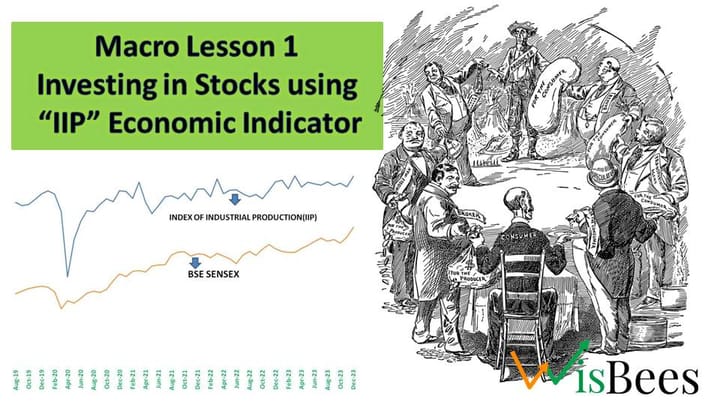Small Savings Schemes in India: A Detailed Overview for Better Financial Planning

In ancient times, our country was called the Golden Sparrow; Sone ki Chidiya, because we were wealthy, prosperous & had established great socio-economic systems. Blame the many historical invasions, much of the wealth was looted, and our socioeconomic system was reduced to dust. Once the nation of great knowledge in every field of science, economics, astronomy & medicine, the literacy rate was just 12% when we got independence.
Just after independence, it was a back-breaking deal for our leaders to build the nation to such a degree that one day we would get back our lost status of Golden Sparrow. The key factor in the framework of nation-building was Equality in every domain, irrespective of caste, creed, or gender.
Since then, the Govt of India & several national agencies have been putting their best effort in achieving the growth model of India. However, Financial equality has remained a tough one to beat. According to a recent Oxfam report, 10% of Indians own more than 80% of concentrated wealth & further, only 1% ( the ultra-rich) own 40.6% of total wealth in India. These numbers are very disappointing with respect to India being the 5th largest economy in the world.
To address this challenge & beat financial inequality, the Government of India & RBI has been promoting financial inclusion. Now let's understand what exactly Financial inclusion means.
Financial Inclusion
In simple terms Financial Inclusion means providing basic financial facilities to the low-income group of people in order to uplift their personal finance, in due course achieving the greater goal of financial equality.
RBI kehta hai, Financial inclusion will be attained when every household can have access to the following 3 financial services.
1. Contingency Plan
This is basically a plan designed to take account of a future event or circumstance that may or may not happen. The main objective of this plan is to ensure that everyone puts their money into the 3 financial aspects stated below.
- Retirement Plan
- Emergency Fund
- Insurance
There are several schemes offered by the government to have a minimum contingency plan for every household, such as National Pension Scheme (NPS), Atal Pension Yojana (APY), Pradhan Mantri Vaya Vandana Yojana (PMVVY), Pradhan Mantri Suraksha Bima Yojana(PMSBY) etc.
2. Credit
Every Individual who is dreaming of expanding their sources of income by opting Agriculture, Fishery, or owning a shop/ industry should be able to avail easy loans. In this category Farmers Credit Card, the famous Mudra Yojana schemes are some crucial projects undertaken by the GOI.
3. Wealth Creation
The grand finale to the journey of financial inclusion is the cure of the lean purse. In the following section of this article, the numerous schemes offered by GOI have been explained explicitly.
- Savings
- Investment
PS: Have you marked something interesting? Insurance & retirement plans do not come under-saving instruments. These are mere contingency plans.
Wealth Creation by Saving & Investment
The iron age stereotype predominant thought says wealth is a term for the people who are born with a silver spoon in their mouth. But this is so untrue, as with the habit of disciplined financial management, one can generate a decent amount of wealth.
Furthermore, one must be aware of the wrong notion of saving, that is, to sacrifice basic needs & wants, live a very minimalistic miserable life & save every penny possible. This is because everything in this world comes with an expiration date, even your dreams. To put it in simple terms, you can’t enjoy your dream car if you save every penny & buy the car at the age of 60.
Hence follow the simple rule of saving 10% of earnings & invest in mutual funds, FD, RD & many more schemes available according to your risk appetite. Plus, have a definite short-term & long-term goals for which you save & invest.
Now let's come back to the theme of this article, which is Government-backed saving schemes, particularly small saving schemes.
Small Saving Schemes
Small Savings Schemes are investment options launched & backed by the government & public sector financial institutions to cultivate healthy saving and investing habits in India. These schemes also result in an increased inflow of money into the economy. Using these schemes, one can grow their saved wealth by a decent interest rate and also enjoy benefits such as tax exemption & loans.
These schemes work best for different financial goals such as Child Education, Girl Child marriage plus empowers women, farmers & senior citizen basically every Indian resident to have financial independence.
These are ideal & safe for wealth creation (for people with low-risk appetite) as they come with a certain lock-in period (Maturity period), good interest & are not subject to market volatility.
Mentioned below are some of the salient features of a few small savings schemes available in the Post office. Further, the interest rate, maturity period, and deposit amount for all the schemes are updated in a table afterwards.
Mahila Sanman Savings Certificate
- To commemorate Azadi ka Amrit Mahotasav, the finance ministry has launched this scheme to bolster the finances of women.
- A Woman herself or a guardian of a Girl child can open an account in the post office under this scheme.
- One can open more than one account with a time gap of 3 months maintained between subsequent accounts.
Sukanya Samridhhi Yojana
- This scheme was created for the benefit of a girl child under the initiative called “Beti Bachao – Beti Padhao”
- The guardian of a Girl child(10 years old or younger) can open an account (only one per child, maximum 2 accounts in family) under this scheme.
- There is a tax exemption under section 80C for the deposited amount up to 1.5 lakhs in this scheme. Further, the interest gained is completely tax-free.
Senior Citizen Saving Scheme
- To provide the senior citizen (aged above 60 years), a stress-free post-retirement life, this scheme was introduced in the year 2004.
- The interest rate declared during the time of investment remains fixed throughout the maturity tenure.
- The interest amount is disbursed quarterly to the a/c holder. But it won’t generate interest if it remains unclaimed.
- The principal amount deposited is exempted from tax deductions under Section 80C (up to 1.5 Lakh).
- The interest received (more than 50,000) is subjected to TDS (tax deducted at source).
National Saving Certificate
- With a guaranteed interest and protection of capital, this is a great investment scheme for every resident of India.
- The total amount deposited is exempted from tax deductions under Section 80C (up to 1.5 Lakh). However, the interest received in the last year of investment is taxable.
National Saving Monthly Income Account
- For ease of understanding, if you have a lump sum amount with you and don’t want to invest in real estate or gold yet want to generate a monthly income, this scheme is the best option for you.
- Under this scheme, your capital enjoys a sovereign guarantee (means backed by the government) & the interest generated is monthly disbursed to your post office a/c.
- However, the interest is taxable in the hand of the depositor.
Public Provident Fund
- A long-term investment option for every resident of India, with a good interest rate, tax exemption benefit under 80C up to 1.5L per year, completely tax-free interest & risk-free as it is backed by the government.
- Further, you can get a loan of up to 25% of the fund after 1 year of subscription with an interest rate of 1% if repaid in 3 years or 6% if repaid after 3 years of the disbursement date.
Kisan Vikas Patra Scheme
- This scheme was launched in 1988 to bring a healthy discipline of savings to the farmer community. However, this scheme is now open to every Indian resident.
- After maturity, the amount withdrawn is completely tax-free. However, it does not come under the sphere of tax benefit under section 80C of income tax.
Small Saving Schemes at Post Office
The mentioned interest rates are applicable from 01/04/2023. These rates change from time to time. For more details & changes in interest rates, follow the official website of the Post Office of India.
Diversification in investment is always advisable to have optimal growth in wealth generation.
In the end, please note; “Fortune sides with him who dares.” –Virgil
Here dare means to save & invest with calculated risks in your quest to achieve enduring financial goals in life. Everyone is equally fortunate in wealth making as long as they are willing to adapt to the simple money management procedure.
So, Stop making silly excuses,
- “I have too many expenses, can’t save money right now”. Seriously!! Saving 500/month is not a mammoth task.
- “Mutual funds are subjected to market risk, its gambling”. Oh!! There are several other schemes if mutual funds are not your thing.
- “I will start from next year”. Believe me, Procrastination is the devil in every business.
| Broker | Type | Offerings | Invest |
|---|---|---|---|
 |
Discount Broker | Mutual Funds, Stocks, IPOs, Bonds | Know more |
 |
Discount Broker | Mutual Funds, Stocks, IPOs, Bonds | Know more |
 |
Discount Broker | Mutual Funds, Stocks, IPOs, Bonds | Know more |
 |
Service Broker | Mutual Funds, Stocks, IPOs, Bonds | Know more |



